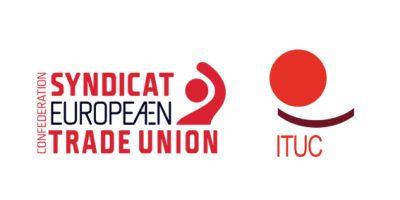
Brussels, 23 March 2018
Dear Presidents,
Dear Prime Minister
The ITUC and ETUC have several times expressed to you their deepest concerns, directly or indirectly, about the developments taking place in Turkey since the failed coup of 15 July 2016.
On 8 March 2017, the ETUC issued a ‘Memorandum on the evolution of the situation regarding human and trade union rights in Turkey, after the instalment of the state of emergency’. That Memorandum showed that, sadly, the decrees adopted by the Turkish authorities since 15 July in the framework of the State of Emergency, clearly breach not only international instruments (ILO Conventions; the International Covenant on Civil and Political Rights – ICCPR and the International Covenant of the United Nations on Economic, Social and Cultural Rights – ICESCR) but also the European Convention on Human Rights [ECHR] and the European Social Charter (revised). These decrees violate the principles of legality, proportionality and necessity, due process guarantees and the presumption of innocence.
A second joint ETUC-ITUC mission went to Ankara, from 3 to 5 May 2017. The aim was, as the International and European trade union movement, to discuss with all our four affiliated organisations [Türk-iş, Hak-iş, Disk and Kesk] the new developments in the situation of trade union members in Turkey. Even if composed of trade unions with different political approaches, the joint delegation shared a common analysis and formulated common demands. At the end of the mission, our four affiliated Turkish Confederations agreed upon a joint statement calling for a lifting of the state of emergency, an end to arbitrary mass dismissals, the release of detained and imprisoned workers, the reinstatement of due process rights and the restoration of the right to freedom of speech.
The European Parliament adopted a resolution in February 2018 raising the exact same concerns by expressing, and I quote, “its deep concern at the ongoing deterioration in fundamental rights and freedoms and the rule of law in Turkey, and the lack of judicial independence,” end of quote.
The UN published a report on Turkey two days ago. Concerning dismissals, UN High Commissioner for Human Rights Zeid Ra’ad Al Hussein said: “The numbers are just staggering: nearly 160,000 people arrested during an 18-month state of emergency; 152,000 civil servants dismissed, many totally arbitrarily; teachers, judges and lawyers dismissed or prosecuted; journalists arrested, media outlets shut down and websites blocked – clearly the successive states of emergency declared in Turkey have been used to severely and arbitrarily curtail the human rights of a very large number of people.”
The dismissed workers have no right of appeal and are blacklisted from other jobs, their passports removed. No efforts have been made to distinguish between sympathisers, leaders and those directly involved with the coup. In 2017 alone, five strikes were banned under the state of emergency.
Sadly, despite dozens of other messages sent by numerous International and European authorities and institutions, by the beginning of this month of March 2018 we did not see the Turkish authorities curbing the state of emergency.
In fact, since the beginning of the Turkish offensive in Syria in January this year, the repression of the right to free speech has been strengthened. Last month, 300 members of the medical association were detained for speaking out for peace. Ms Elif Cuhadar, Executive Committee member of the Turkish trade union KESK and member of the ITUC Human and Trade Union Rights Committee, was arrested last month for statements she made during a panel discussion four years ago. Three trade unionists, Cagdas Yazici, Recep Temel and Idil Ugurlu, were arrested in Izmir just last Saturday. The reason for their arrest is unknown, and neither their lawyers nor their family members have been able to see them since their arrest.
More than 30 decrees have been issued, the latest ones containing some measures that have NOTHING to do with an “emergency”, such as the use of winter tyres or the replacement of 1 million workers in subcontracting mostly by full-timers (public admin).
The Commission of Inquiry on State of Emergency Measures, promised by the Turkish authorities (decision 23 January last year) to appease the Council of Europe, has been put in place, but it is neither transparent nor neutral. The decisions of this Commission must therefore be subject to judicial review and possible independent, transparent and effective appeal procedures within a reasonable timeframe, including in the last resort at European level.
It is against this background that, in the light of the UE-Turkey summit due to take place in Varna on 26 March, the ITUC and ETUC urge the Commission, as well as the Council, to send a clear, powerful but constructive message to the Turkish government condemning the upsurge in violations of fundamental rights and freedoms over recent months, pleading for a return to respect for the rule of law, democracy and justice and calling on Turkey, as an EU candidate country, to comply with European Charters and Conventions.
Thanking you in advance for your time,
Yours sincerely
Sharan Burrow, ITUC General Secretary
Luca Visentini, ETUC and PERC General Secretary
